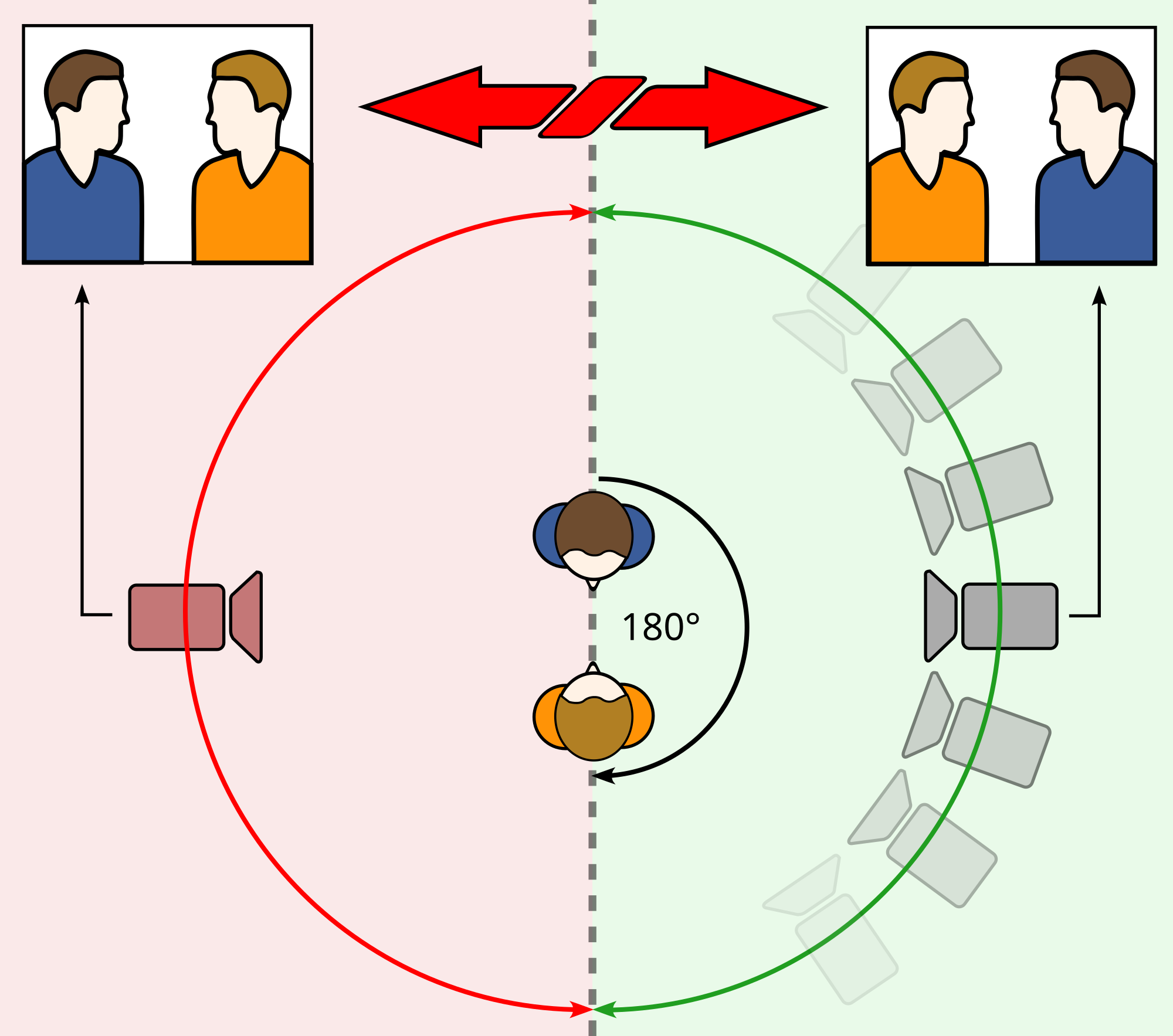Shot reverse shot
Shot reverse shot refers to the filming technique used to
show the back and forth dialogue being shared by two characters. The way it is
used is that the camera films from one direction first and then cuts to the
opposite direction of the previous shot this is useful to show the expressions
of both characters throughout the conversation.
When using shot reverse shot, the 180 degree rule must be
consulted.
180 degree rule
 The 180 degree is a guideline that is taken into
consideration during filmmaking. It is used to set the space of which the
characters have in a scene, this grounds it and helps the audience understand
the placement of the scene taking place.
The 180 degree is a guideline that is taken into
consideration during filmmaking. It is used to set the space of which the
characters have in a scene, this grounds it and helps the audience understand
the placement of the scene taking place.
When considering the 180 degree rule you must imagine a line
going through both actors if you were viewing the scene from overhead. The
first camera shot where the scene starts will be on either side of that line.
If the first shot is on the left side of the vertical line then all following
shots where the two people are interacting must continue to be on the left.
This rule is taken into thorough consideration when
constructing a scene with a conversation between two characters using shot
reverse shot.
It is called the 180 degree rule as it states that the
camera cannot rotates further than 180 degrees from the previous shot. If this
were to happen then it would seem like the two characters, who are facing each
other to converse, are facing the same way. This would disorientate the
audience and will make the scene confusing. However, the 180 degree rule has
been broken in certain films like The Shining and The Dark Night.
Matching on action
Matching on action is the term used for when a scene uses
several different shots to show a person completing one action. An example of
this would be someone walking through a door. The person would be shown walking
toward a door in a wide shot followed by them reaching for the door handle in
an extreme close up in the next shot. The new shot that the scene cuts to must
match the action taking place in the previous shot.

No comments:
Post a Comment